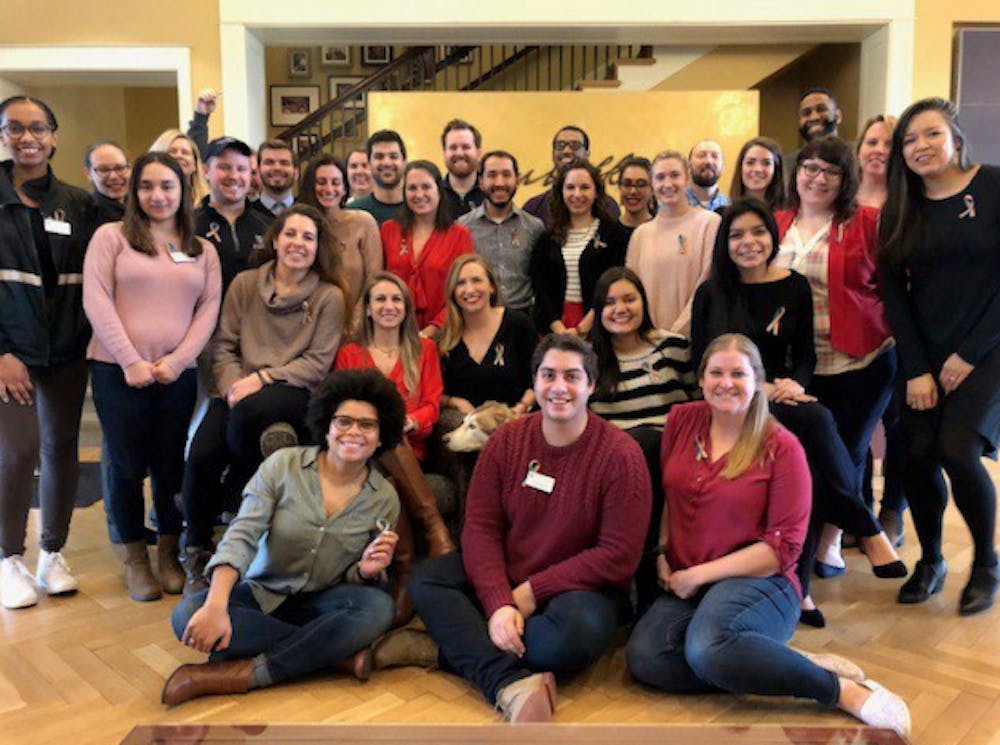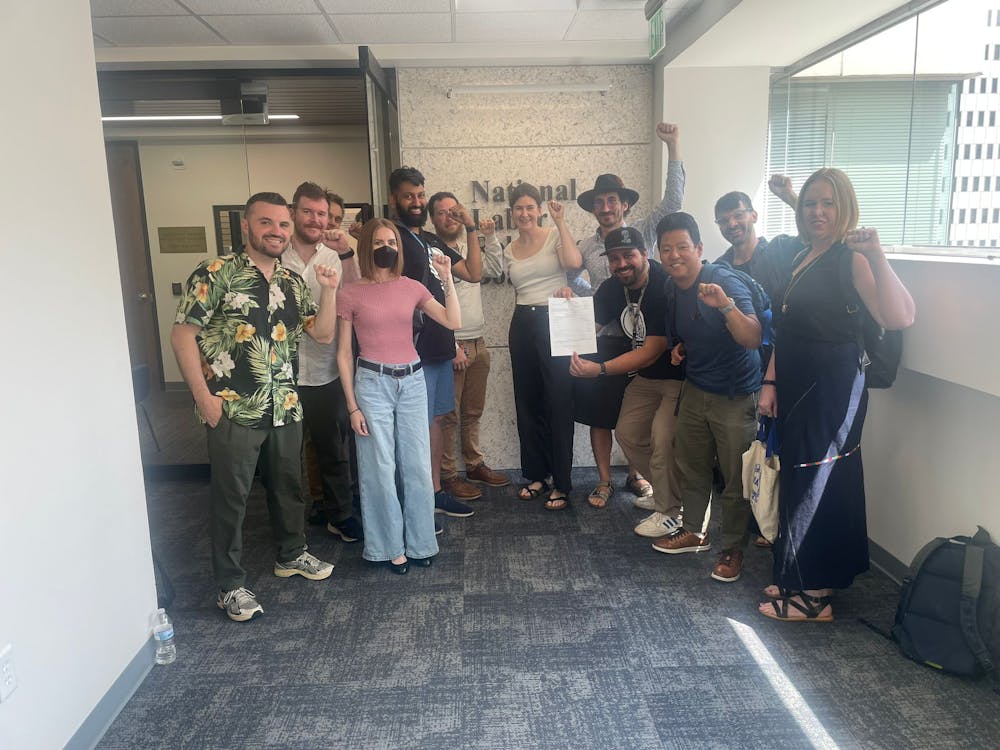LGBTQ Life and the Diverse Sexuality and Gender Alliance (DSAGA) held a dinner to celebrate their second Show Your Love visibility campaign on Valentine’s Day.
The visibility campaign began in the first few days of February. Members of the Hopkins community were encouraged to wear a rainbow ribbon in support of the LGBTQ community. Rainbow ribbons were available in the LGBTQ Life office and other distribution sites across the various Hopkins campuses. There was also a social media campaign in which posts with the hashtag #JHUShowYourLove were eligible to win prizes.
According to Demere Woolway, the director of LGBTQ Life, the campaign was not only meant to increase visibility but also give those who are not a part of the LGBTQ community a chance to participate.
“We often hear from straight allies that they would like to be involved but they don’t have the time, so this was meant as an easy way to show support for the community,” Woolway wrote in an email to The News-Letter.
Last year, during the campaign’s inaugural year, 1,200 ribbons were passed out. According to Woolway, this year, more than 2,700 ribbons were given away. More distribution sites, including the Applied Physics Lab and Jhpiego, were added.
However, junior Emily Velandia said that she had heard more about the campaign last year than she did this year. Even some of her friends, who are a part of the LGBTQ community, did not know about the event until she texted them.
“Last year, I got an email about it and the English department had ribbons that you could go pick up — that was where I got my ribbon last year. But I didn’t see that email about collecting ribbons or the dinner this year,” Velandia said.
The campaign culminated in a dinner held at the Interfaith Center. There were also a Valentine’s Day-themed crafts and activities for the attendees.
Senior Frances Campbell, who was a board member of DSAGA and part of the planning committee for the first Show Your Love campaign, explained that one of its original intents was to connect members of the LGBTQ community.
“We’re here; we’re queer. Show Your Love was supposed to make us visible to the community at large as well as to each other,” Campbell said.
Senior JoJo Castellanos agreed that the dinner and campaign built ties among the LGBTQ community.
“I love this event. It is so important to have community spaces in which you can see people who look like you and reflect your identity. I enjoy having a space where I can see other queer people,” Castellanos said.
Emma Shannon, an intern at the LGBTQ Life, said that there is usually a good mix of regular attendees and newcomers at events hosted by LGBTQ Life.
However, Velandia would have liked to see more allies attend through better advertising of the event. According to Velandia, this would have led to more socializing among different groups of people.
“That could help reinforce the normality of the people in that community, that they are not necessarily a subset, but that they are like everybody else,” Velandia said.
However, seniors Campbell and Castellanos noted that there has been measurable progress in increasing the visibility and involvement of the LGBTQ community. They observed that compared to their first year at Hopkins, there have been more events hosted by LGBTQ Life and greater attendance at these events.
“I have seen over the years how much growth has happened and over the years the attendance is getting higher and higher,” Castellanos said.
Last April DSAGA put pride flags on Gilman quad. Out in Science, Technology, Engineering and Math (oSTEM) hosted tie-dying on the breezeway. Multiple students spoke about the strong networks that those groups have created for their members.
Despite this progress, some students highlighted areas of needed improvement. Suggestions included installing more gender-neutral bathrooms on campus and allocating a space to write pronouns on name tags for networking events or leadership conferences.
Jack Magann, a first-year graduate student, noted a lack of events for graduate and postdoctoral students. He is currently working with Woolway to organize gatherings for those students to mingle. He acknowledged that a potential barrier is that graduate students have vigorous schedules.
“[Graduate students] are always in their labs focusing on their research and their classes, not so much on the social aspect of what college offers. So it is a little harder to meet grad students at these events whereas undergrads have weekly meetings,” Meagann said.
For Campbell, one of the biggest issues is the awkwardness when others interact with trans or queer people. In a visit to the Health and Wellness Center, Campell said that while they felt that they were treated well, the staff was tense and nervous when addressing Campbell. Campbell believes that ease and comfort in interactions with trans and queer people comes with practice.
“It’s like learning a new language. You know the words and you know how to say them but you forget things so you stumble through a new language, which is perfectly natural, and I understand why that is happening. But really being able to practice using a different language would really help the ability of trans people to use the Health and Wellness Center,” Campbell said.
Graduate student Lee Clyne believes that even small changes in student introductions at the beginning of a class, like including preferred pronouns, can demonstrate sensitivity to the LGBTQ community.
“A lot of times at the start of a class the professor will say, ‘Go around and introduce yourself. Say your name, your year...’ and it wouldn’t be that hard to include pronouns,” Clyne said.
Woolway also recommended Safe Zone training for cisgender and heterosexual people who want to take further steps to support the LGBTQ community. Safe Zone training is a three hour program which helps participants become better allies of the LGBTQ community. It is open to all students, staff and faculty.
Woolway shared other tangible ways for allies to support LGBTQ people.
“It can be small things like wearing a ribbon or a pronoun pin. It can be medium things like showing up at an LGBTQ event or reading an article to learn more about an underrepresented identity. It can be big things like co-sponsoring a program with an LGBTQ theme or advocating for changes to an inequitable practice,” Woolway wrote.





